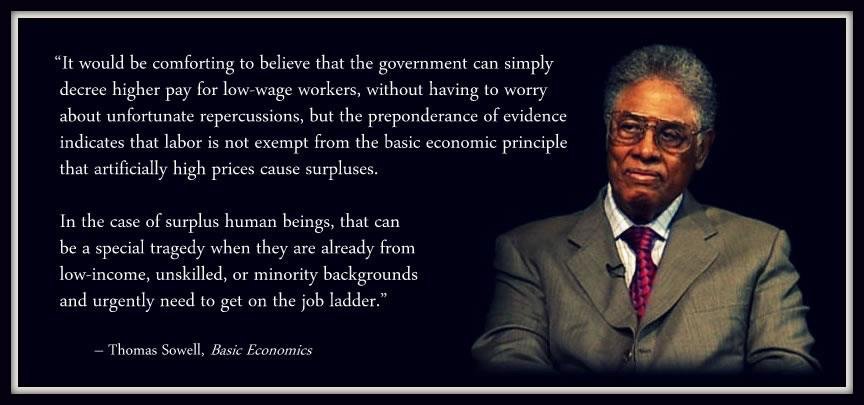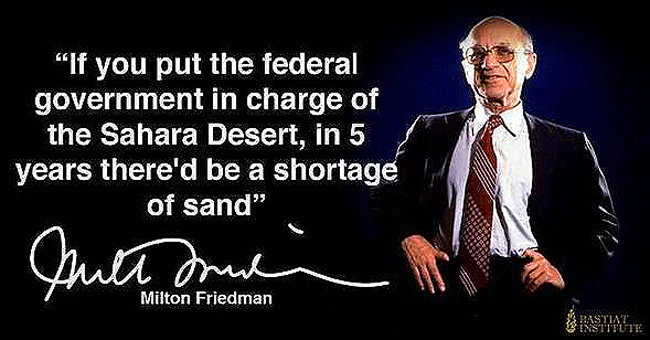 And Leftists can’t wait for it to occur.
And Leftists can’t wait for it to occur.
Most recently, Jane Fonda said this about the minimum wage as per the Detroit Free Press:
Jane Fonda visits Detroit to push for $12 minimum wage
by Ann Zaniewski
Actress and activist Jane Fonda will be in Detroit this weekend for a fundraiser to promote a $12 minimum wage in Michigan and better rights for all workers.
Fonda will discuss her activisim and committment to workers’ rights from 6-8 p.m. Saturday at Colors Restaurant, 311 East Grand River Ave. She will “talk directly with restaurant workers about the struggles they endure receiving the tipped minimum wage,” according to a news release about the event.
My first thought was: where are the other $3 dollars per hour that Leftists are demanding? Why so tight with your wages, Jane Fonda?
After all, Fornicalia Governor Jerry Brown said, about the $15 minimum wage:
Gov. Brown admits $15 minimum wage makes no sense, signs bill anyway
by Eric Boehm
Economically, a $15 minimum wage doesn’t make much sense for many parts of California.
Even Gov. Jerry Brown, who on Monday signed a bill to increase California’s minimum wage to that level, knows that.
In what could go down as one of the most honest moments in political history, Brown told reporters that raising the minimum wage was more about culture and politics than about economics.
Trust me, Brown is in the throes of dementia per my sources. At many times his wife is actually running Fornicalia. Here, perhaps, his true thoughts emerged but for a brief moment.
“Economically, minimum wages may not make sense,” Brown says in a video posted online by the Sacramento Bee newspaper. “But morally, and socially and politically, they make every sense because it binds the community together.”
Right. Binding the community together in economic destitution.
Reaffirming my position that Leftists and Demorats think only of emotions and not facts or reality. Leftists were shedding flecks of enamel from their teeth when they heard this.
Sadly, as Larry Elder has talked about for years, the people most likely hurt by minimum wage laws are blacks in America.
What are the costs of a minimum wage in general? Economist Milton Friedman said this, applicable then as now.
The figures change; consequences do not. Milton Friedman said: “the people who have been hurt most by the minimum wage laws are the blacks.”
From BET.com:
Black Teens Are Fired When the Minimum Wage Rises
Two labor economists report that when the minimum wage increases, Black teens suffer disproportionate dismissals.
It is no surprise that Black teens, 16- to 19-years old, are disproportionately unemployed. At the Great Recession’s bottom, African-American teens had an unemployment rate of nearly 50 percent while the rate for all teens was 27.1 percent. In the weak post-Recession, many teens compete for jobs against down-sized adults with college degrees.
And economists William Even from Miami University and David Macpherson from Trinity University report that when a state, or the federal government, increases the minimum wage, Black teens are more likely to be laid off. The duo analyzed 600,000 data points, which the Employment Policies Institute says included “a robust sample of minority young adults unprecedented in previous studies on the minimum wage.”
Why?
A key reason is that many young Blacks hold tenuous, low-skilled positions in the nation’s eating and drinking businesses, such as fast food restaurants. The researchers report “that nearly one out of three Black young adults without a high school diploma works in the industry.”
There is a caveat.
It is a sector that welcomes their entry, and lauds young Black workers in its ads. But African-American teens working in that highly-competitive industry with its narrow profit margins should know that their job is on shaky ground when the minimum wage rises.
Is there any morality connected to the so-called “minimum” or “working” wage”
Is there any sort of an historical reference to the minimum wage and blacks in any general case? From PanAmPost.com:
US History Shows the Minimum Wage Has Harmed the Black Community
by Grant Phillips
Black teenage unemployment was roughly equal to their white counterparts in 1948, but has since diverged sharply away from whites. The same is true for the labor force participation of black teenagers.
The minimum wage continued to reduce black youth employment from 1940 to 1970, with the racial unemployment gap expanding as a result.
However, during this same period, the racial income gap shrank to it its lowest point. Wage growth for the entire black community — not just black youths — was almost double the subsequent growth from 1970 to 2000.
Let that statistic sink into your brain pan for a moment or three. The terrible trend built by Leftists began rolling in earnest.
While older blacks already in the workforce were less likely to be affected by the new price floor, the minimum wage effectively prevented black teens from gaining work experience, and the necessary skills for future labor. This was exacerbated by an education system rigged by racist government funding mandates, which prevented black teens from building sufficient human capital through schooling.
When this generation of black teens hit their 20s, many of them had no job experience and, because of wage floors, were unable to find employment. Eventually, they exited the workforce entirely.
Until 1970, the labor force participation rates of black males age 20-24 were equal to, and even slightly higher, than whites of a similar age.
Let me repeat and emphasize that last sentence: “Until 1970, the labor force participation rates of black males age 20-24 were equal to, and even slightly higher, than whites of a similar age.”
How odd that this information flies directly in the face of what Demorats, Leftists and Poverty Pimps tell you.
Unemployment of the same group, which widened after the minimum wage, was 62 percent higher than whites in the same year. By 1980, both measures worsened as blacks exited the labor force in large numbers.
In 1965, the Great Society began to “fight” racial and economic disparity through a number of welfare programs and jobs initiatives that still exist today. These policies were targeted at the poor, and although blacks were continuing to make large economic gains, they disproportionately qualified because they were still the poorest demographic at that time.
LBJ’s “Great Society” was the beginning of the long claw to the bottom for American blacks, instigated by a man who said:
These Negroes, they’re getting pretty uppity these days and that’s a problem for us since they’ve got something now they never had before, the political pull to back up their uppityness. Now we’ve got to do something about this, we’ve got to give them a little something, just enough to quiet them down, not enough to make a difference. For if we don’t move at all, then their allies will line up against us and there’ll be no way of stopping them, we’ll lose the filibuster and there’ll be no way of putting a brake on all sorts of wild legislation. It’ll be Reconstruction all over again.
Or as LBJ is reported to have said to one of his black chauffeurs one day:
As long as you are black, and you’re gonna be black till the day you die, no one’s gonna call you by your goddamn name. So no matter what you are called, nigger, you just let it roll off your back like water, and you’ll make it. Just pretend you’re a goddamn piece of furniture.
Or one of LBJ’s most famous quotes.
“I’ll have those niggers voting Democratic for 200 years.”
That one seems to have been vastly prescient and accurate to this day. Just ask Dinesh D’Souza.
Unfortunately, the Great Society has had very little impact on the poverty rate, and has completely failed to reduce the socioeconomic disparity between black and white Americans.
Blacks made significant gains in economic prosperity up until the minimum wage and Great Society welfare state; all in spite of lawless government policies. Without these disastrous programs, they would have continued to make productive gains and close the economic gap.
The Cato Institute then asks, at Cato.org:
Why Did FDR’s New Deal Harm Blacks?
by Jim Powell
Good intentions are over-rated. Franklin Delano Roosevelt’s New Deal, for instance, has been hailed for its lofty goals of reforming the American economy and helping the under-privileged. Yet mounting evidence, developed by dozens of economists across the country, shows that the New Deal prolonged joblessness for millions, and black people were especially hard hit.
The flagship of the New Deal was the National Industrial Recovery Act, passed in June 1933. It authorized the president to issue executive orders establishing some 700 industrial cartels, which restricted output and forced wages and prices above market levels. The minimum wage regulations made it illegal for employers to hire people who weren’t worth the minimum because they lacked skills. As a result, some 500,000 blacks, particularly in the South, were estimated to have lost their jobs.
That cannot be. Just ask Demorats and Leftists.
Marginal workers, like unskilled blacks, desperately needed an expanding economy to create more jobs. Yet New Deal policies made it harder for employers to hire people. FDR tripled federal taxes between 1933 and 1940. Social Security excise taxes on payrolls discouraged employers from hiring. New Deal securities laws made it harder for employers to raise capital. New Deal antitrust lawsuits harassed some 150 employers and whole industries. Whatever the merits of such policies might have been, it was bizarre to disrupt private sector employment when the median unemployment rate was 17 percent.
Then unions stepped in.
The Wagner Act (1935) harmed blacks by making labor union monopolies legal. Economists Thomas E. Hall and J. David Ferguson explained: “By encouraging unionization, the Wagner Act raised the number of insiders (those with jobs) who had the incentive and ability to exclude outsiders (those without jobs). Once high wages have been negotiated, employers are less likely to hire outsiders, and thus the insiders could protect their own interest.”
Wait. Unions love blacks. Right?
By giving labor unions the monopoly power to exclusively represent employees in a workplace, the Wagner Act had the effect of excluding blacks, since the dominant unions discriminated against blacks. The Wagner Act had originally been drafted with a provision prohibiting racial discrimination. But the American Federation of Labor successfully lobbied against it, and it was dropped.
Oh stop. Please. We’re told by Leftists and Demorats that unions historically then and now love American blacks. Just as Demorats have historically loved American blacks.
AFL unions used their new power, granted by the Wagner Act, to exclude blacks on a large scale. Booker T. Washington, W.E.B. DuBois, and Marcus Garvey were all critical of compulsory unionism.
Uh. Ooops. And I haven’t even addressed the TVA — Tennessee Valley Authority — issue.
What about New Deal spending programs? They were channeled away from the poorest people, including millions of blacks, who lived in the South. These people were already on FDR’s side, so, from a political standpoint, there wasn’t anything for FDR, as an incumbent, to gain by giving them money.
Does this sound like something of a precursor to LBJ by FDR?
If FDR’s New Deal policies weren’t conceived with racist intent, they certainly had racist consequences. Hopefully in the future, more people will try to better understand the often startling, unexpected consequences of government interference with the economy.
You have to ask, though, are wages even the primary issue? From an episode of “Real Time With Bill Maher,” Mike Rowe makes a series of insightful points.
Then, from the Employment Policies Institute, at EPIOnline.org:
Minimum Honesty on Minimum Wage
It tells you all you need to know about the drive to alter New Jersey’s Constitution to hike the minimum wage that the measure’s proponents keep citing a study that was completely discredited more than a decade ago.
Back in 1994, Princeton economists David Card and Alan Krueger claimed that they’d looked at Garden State fast-food outlets in the wake of the state’s 1992 minimum-wage hike — and found that employment increased relative to similar restaurants in next-door Pennsylvania.
But six years later, the Card & Krueger study was debunked in the same economics journal that originally published it.
Perhaps after a crashing bit of reality set in?
Far from boosting employment, they found, the mandated wage increase in New Jersey decreased employment — just as economic theory would predict.
Sadly, some journalists are also playing this game: In recent months, writers in Bloomberg, The Chicago Tribune, The Washington Post and The New York Times have also trotted out the study to support their points.
Then Salem Radio’s host Larry Elder weighs in, at the WashingtonExaminer.com:
When left wing economists Gruber and Krugman practiced economics
by Larry Elder
President Obama, in his State of the Union speech, called for a minimum-wage hike and for government-mandated paid family and medical leave.
“We are the only advanced country on Earth,” said the President, “that doesn’t guarantee paid sick leave or paid maternity leave to our workers.” On the minimum wage, Obama issued this challenge: “And to everyone in this Congress who still refuses to raise the minimum wage, I say this: If you truly believe you could work full-time and support a family on less than $15,000 a year, try it. If not, vote to give millions of the hardest-working people in America a raise.”
In 2011 — less than four years ago — Gruber gave an MIT lecture called “Applying Supply and Demand.” About the minimum wage, Gruber said: “Let’s say the government rolled in and set a minimum wage. … Workers want to supply more hours than firms want to hire. … You end up with excess supply. And we call that excess supply ‘unemployment.’ ” He also insisted that a higher minimum wage pressures an employer to turn to automation: “We have a downward sloping demand curve, and why is it downward sloping? Because the higher the wage, the fewer workers the firm wants to hire. It would rather use machines instead.”
Hello Future? Fast food kiosks? Fruit picking machines? Even the Roomba?
Krugman even dismissed Card-Krueger, the widely cited minimum-wage study that purports to show its positive effect. Krugman pretty much dismissed it. “Indeed,” he wrote, “much-cited studies by two well-regarded labor economists, David Card and Alan Krueger, find that where there have been more or less controlled experiments, for example when New Jersey raised minimum wages but Pennsylvania did not, the effects of the increase on employment have been negligible or even positive. Exactly what to make of this result is a source of great dispute. Card and Krueger offered some complex theoretical rationales, but most of their colleagues are unconvinced; the centrist view is probably that minimum wages ‘do,’ in fact, reduce employment, but that the effects are small and swamped by other forces.”
“In short, what the living wage is really about is not living standards, or even economics, but morality. Its advocates are basically opposed to the idea that wages are a market price — determined by supply and demand, the same as the price of apples or coal. And it is for that reason, rather than the practical details, that the broader political movement of which the demand for a living wage is the leading edge is ultimately doomed to failure: For the amorality of the market economy is part of its essence, and cannot be legislated away.”
Are you beginning to see a bit of a recurrent theme throughout the post? Something about the corruptive and deleterious effects of Leftist intrusion into the once-nuclear black family in America?
Cui bono?
BZ



